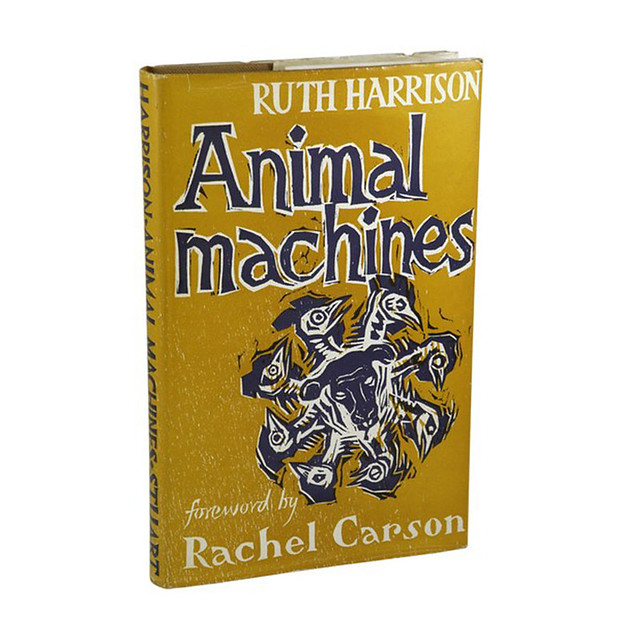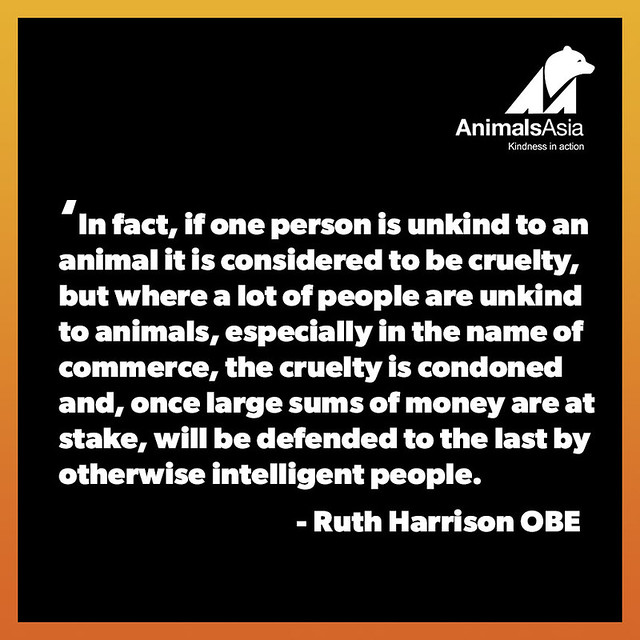We honour Ruth Harrison OBE a pioneer for the welfare of farmed animals.
13 June 2020
Ruth Harrison was a British animal welfare activist and writer, born on the 24th June 1920, she passed away on this day twenty years ago on June 13 2000.

During her life she played a pivotal role in exposing the atrocities which beset animals within the intensive farming industry and her exposure of these atrocities has been credited as inspiring Britain's (and subsequently the European Union’s) first farm animal welfare legislations designed to protect farmed animals from suffering.
Her descriptions were made through the publication of her book "Animal Machines" in 1964. Documenting, what were at the time, the new agricultural systems that had been developed including battery cages for hens, individual crates for veal calves and tether stalls for sows. Systems which strip away the individuality of the animals themselves and turn them into mere production units. Exposing the suffering inflicted on farm animals by such practices, many of which are still operational on a global scale today some 56 years since the book's publication.
Ruth’s work and knowledge of intensive animal farming prompted the British government to appoint a committee chaired by Francis Brambell to investigate the welfare of farm animals. In 1965, the "Brambell Report" was published which outlined the five freedoms of animal welfare and inspired Britain's first farm animal welfare legislation, the 1968 Agriculture (Miscellaneous Provisions) Act. Ruth’s participation at a European level subsequently led to the European Convention for the Protection of Animals Kept for Farming Purposes, set up by the Council of Europe in 1976.
"Animal Machines" has since been published in seven countries and translated into seven languages and remains a pivotal reference book on the atrocities caused by the intensive production industry.
We offer thanks for her dedication towards ending such atrocities and sorrow that many of these continue to exist today. Thankfully, the legacy of her publication and her tireless campaigning on behalf of farmed animals continues to inspire campaigns throughout the world.
BACK






 Healing the hidden wounds
Healing the hidden wounds
 Early summer awakening at the China Bear Rescue Centre
Early summer awakening at the China Bear Rescue Centre
 5 reasons the dog meat trade must end
5 reasons the dog meat trade must end